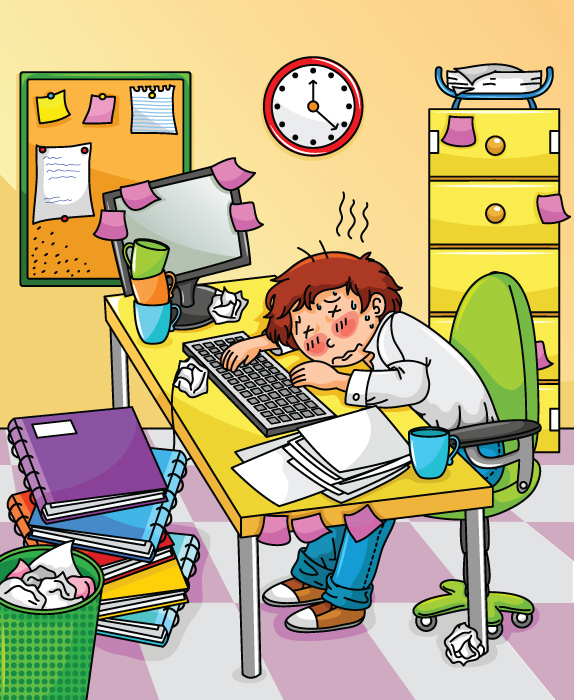
By making some adjustments to your life, you could avoid that moment when your body switches off explains Florence Parot
Most people coming to me for help before or after burnout often have no idea what it is, no idea what is happening to them. Burnout is not depression, it is not mid-life crisis. Burnout is a severe long-term physical, mental and emotional fatigue caused by excessive and prolonged work overload. One day, your body switches the ‘off’ button.
How did you get there?
All those who go through burnout have one thing in common: they have been doing too much for too long, usually under a large amount of stress.
The danger is you may not recognize it before it is too late. You love what you are doing and want it to be perfect, so you do even more of it. But our body does not differentiate between ‘negative’ and ‘positive’ stress. It reacts in exactly the same way: a surge of adrenalin, then cortisol if needed. These hormones are very useful to our body but they become a problem when we have too much of them for too long in our system. Cortisol especially decreases the feeling of pain so when we reach that stage, we may not even feel that we are under pressure any more. ‘Karoshi’ or ‘instant death by overwork’ may happen if you go overboard and your adrenal glands auto-destruct because they have already produced so much adrenalin that they cannot do it anymore. Burnout is there to prevent you reaching that stage.
How does it work?
Phase 1: The warning phase
You work more than 60 hours a week on a normal basis, you feel under pressure or your brain is always busy, even when not working.
Roch Denis describes this phase as follows: ‘For the time being, I am burning my inner fuel. I have no idea one day I will have no more. Burnout is a consequence of ignorance. {…} It is that ignorance, that unwillingness to identify the burn out symptoms that have condemned me, first to a year of sickness and worry, then to the hell of 4 years of major depression.’[1]
Phase 2: Ignoring the warning phase
If phase one goes on for several months, you may start to experience physical symptoms such as back aches, digestive problems, heart pain, headaches or migraines.
Phase 3: The crisis phase – going into burnout
In most cases, you collapse in a heap or find you are physically unable to get up in the morning. Suddenly, you are exhausted all the time, with sleep not providing relief or improvement.
People who suffer from burnout are not weak, they are passionate, talented, dedicated people who thoroughly love what they are doing, people on a mission, who do not count their hours. They are not doing something wrong, they are just doing too much of it.
If you wait until you collapse, you will need about a year to recover, unable to work or function normally. You will need to stop and rest, get help and let time do its work.
If you are not burnt out but feel you might be a likely candidate, the following advice could be a great help for you to avoid getting that far, and to make the necessary fine tuning.
Take A Break
Those of you who are used to my articles will know what I mean: a one minute break can recharge you for the rest of the day. Take very short breaks several times a day. And use any time when you are waiting to relax. Take at least one real day off per week and one proper holiday per year, with no electronic device or work-related documents.
Listen to Yourself and Know Your Limits
Know your boundaries, find what works for you, learn to say no, and do not accept more.
Make a habit of listening to how you are feeling breathing, driving, arriving home, cooking and eating.
Live a Mindful Life
Live in the present, stop overthinking, just do one thing at a time. Be very mindful of whatever you are doing.
Measure is the key. We all need a good balance. Remember, life is a marathon, not a sprint; don’t exhaust yourself.
[1]Roch Denis: Mon Burnout












